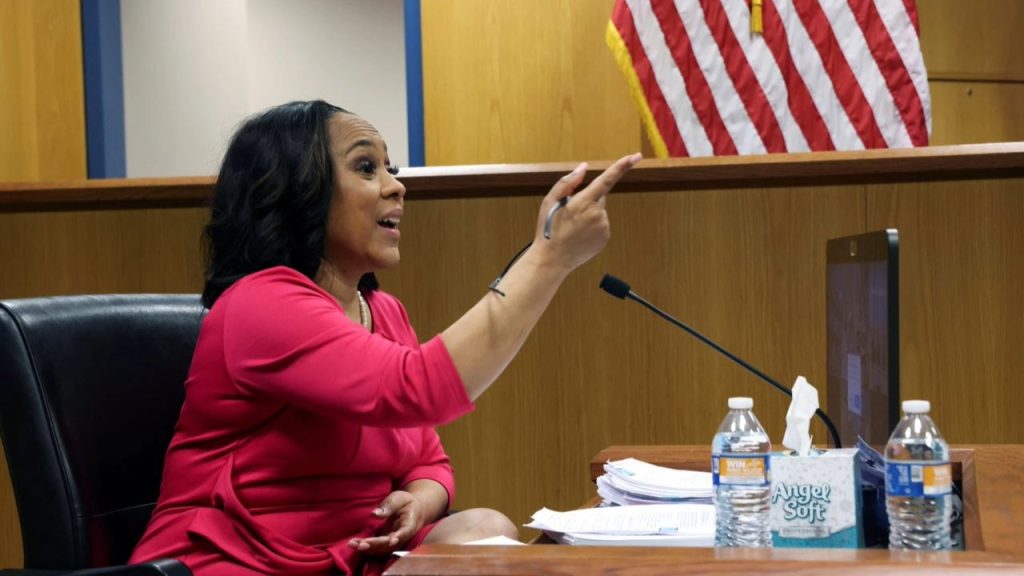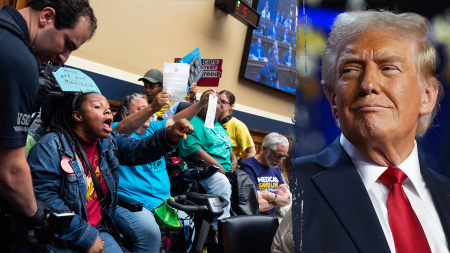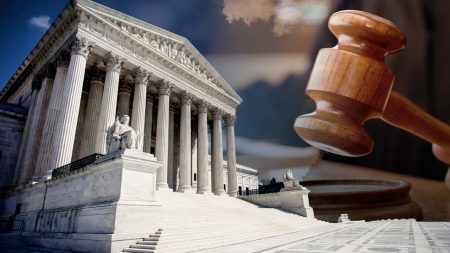The Fulton County District Attorney’s Office, headed by Fani Willis, has found itself embroiled in a legal battle with the conservative watchdog group, Judicial Watch, over access to communications between Willis and both Special Counsel Jack Smith and the House January 6th Committee. This dispute stems from Judicial Watch’s open records request, which Willis’s office initially denied, claiming a lack of such records. A judge subsequently ordered Willis to produce any existing communications, prompting a renewed search by the Fulton County Open Records Department. The department now maintains that no records of communication exist between Willis and Smith, and any potential communications with the January 6th Committee are protected from disclosure under Georgia’s Open Records Law. This assertion of exemption centers on the argument that these communications are integral to the ongoing investigation and prosecution of former President Trump and his associates for alleged election interference.
This legal wrangling unfolds against a backdrop of intense political scrutiny of Willis’s actions, particularly from Republican lawmakers and conservative groups. The House Judiciary Committee, for instance, has launched an investigation into the potential coordination between Willis and the January 6th Committee, raising concerns about the propriety of their interactions. This inquiry underscores the deep political divisions surrounding the investigation into alleged election interference, with some viewing Willis’s actions as a legitimate pursuit of justice while others see them as politically motivated.
The central issue in the Judicial Watch lawsuit revolves around Georgia’s Open Records Act, which generally mandates public access to government documents. Willis’s office initially claimed they weren’t properly served with the request, contributing to the delay in their response. However, the judge’s order compelled a more thorough search, leading to the current assertion that the requested documents either do not exist or are exempt due to their connection to an ongoing investigation. This exemption clause within the Open Records Law is designed to protect the integrity of investigations and prevent the premature release of information that could jeopardize legal proceedings.
The broader context of this legal dispute is the complex and highly charged investigation into alleged attempts to overturn the 2020 presidential election results in Georgia. Trump and 18 co-defendants were indicted in Fulton County on racketeering charges related to these alleged efforts. While these charges remain pending, their future is somewhat uncertain, especially in light of Trump’s 2024 presidential victory and the Justice Department’s longstanding policy against indicting a sitting president. This policy, coupled with the conclusion of Special Counsel Smith’s federal investigations following Trump’s victory, adds another layer of complexity to the Georgia case.
The ongoing legal tussle between Willis and Judicial Watch exemplifies the tension between transparency and the need for confidentiality in legal proceedings. Judicial Watch argues for greater public access to government information, aiming to shed light on potential coordination between different investigative bodies. Conversely, Willis’s office contends that releasing such information could compromise the ongoing investigation and prejudice potential future legal proceedings. This clash highlights the delicate balance between the public’s right to know and the necessity of protecting the integrity of investigations.
Ultimately, the court will have to determine whether the claimed exemptions under Georgia’s Open Records Law are valid in this particular case. This decision will have implications not only for the immediate legal battle but also for the broader debate surrounding transparency in government investigations and prosecutions, especially those involving high-profile political figures. The outcome could set a precedent for future open records requests in similar politically charged investigations, further defining the balance between public access and the need to protect sensitive information related to ongoing legal proceedings.










